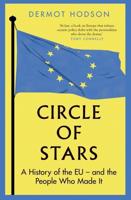Publisher's Synopsis
This book examines how, within foreign policy, perceptions are a reflection of an actor's conception of status, credibility and legitimacy assigned to the Self and the Others. Perceptions of the Self and Other and their roles in international relations are also informed by images of superiority, intent and affinity. Perceptions may change over time and under the impact of dramatic events.
Chapters explore the perceptions of both sides of EU-Ukraine relations, and propose a new set of concepts to highlight internal and external role incongruences, including: perception gaps, expectations-performance gaps and hope-performance gaps. A differentiation between cognitive, emotive and normative elements of images helps to explain role conflicts. The book further offers a comparison of EU self-images and Ukrainian expectations and perceptions in four areas of external actions of the EU: as an international leader and global and regional power, a partner for Ukraine, a peace mediator and a public diplomacy actor.
Scholars and students of international relations, European politics, and EU foreign policy will find this book a useful resource. It will also benefit those studying political communication, as the book considers conceptual metaphor theory in its application to the studies of images and perceptions in international relations and communication about complex political events and actors.









